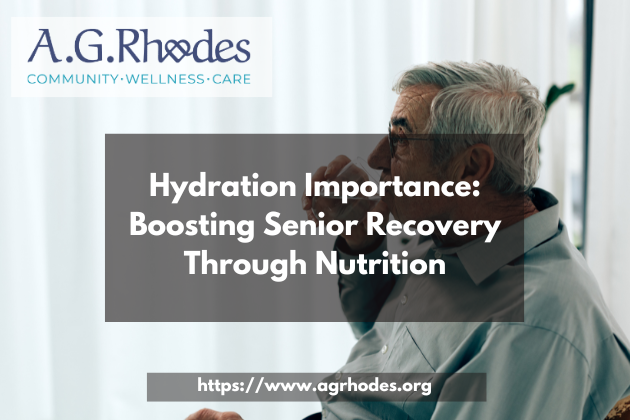 The Power of Water
The Power of Water
As we age, our bodies undergo a series of changes that can impact our overall health and well-being. One crucial aspect often overlooked is hydration. Adequate hydration is essential for seniors to maintain optimal health, especially during recovery from illness or injury. In this blog post, we’ll delve into the importance of hydration for seniors and explore how it can significantly impact their recovery process.
Why Hydration Matters for Seniors
- Cellular Function: Water is a vital component of every cell in our bodies. It helps transport nutrients, oxygen, and waste products, ensuring optimal cellular function.
- Organ Health: Proper hydration is essential for the health of our organs, including the kidneys, heart, and lungs. It helps regulate body temperature, prevents constipation, and supports healthy digestion.
- Cognitive Function: Dehydration can impair cognitive function, leading to symptoms like fatigue, confusion, and difficulty concentrating.
- Physical Performance: Adequate hydration is crucial for maintaining muscle strength and endurance, especially during recovery from illness or injury.
- Immunity: A well-hydrated body is better equipped to fight off infections and maintain a strong immune system.
Signs of Dehydration in Seniors
It’s important to be aware of the signs of dehydration in seniors, as they may not always exhibit the same symptoms as younger individuals:
- Dry mouth and lips
- Decreased urine output
- Dark-colored urine
- Fatigue
- Confusion
- Dizziness or lightheadedness
- Constipation
Tips for Staying Hydrated
- Drink Regularly: Encourage seniors to sip water throughout the day, even if they don’t feel thirsty.
- Flavorful Options: If plain water is unappealing, consider adding a slice of lemon, lime, or cucumber, or a splash of fruit juice.
- Soups and Stews: Soups and stews can provide both hydration and nutrition, especially during colder months.
- Fruits and Vegetables: Many fruits and vegetables, such as watermelon, strawberries, and cucumbers, have a high water content.
- Monitor Medications: Some medications can affect fluid balance, so it’s important to consult with a healthcare provider if you have any concerns.
Hydration and Senior Recovery
Adequate hydration plays a crucial role in the recovery process for seniors. It helps:
- Promote tissue repair: Water is essential for the body to repair damaged tissues and cells.
- Prevent complications: Dehydration can increase the risk of infections, falls, and other complications during recovery.
- Enhance energy levels: Staying hydrated helps combat fatigue and improve overall energy levels.
- Support cognitive function: Proper hydration is essential for maintaining mental clarity and focus during recovery.
Conclusion
Hydration is often overlooked but is a vital aspect of senior health, especially during recovery. By ensuring adequate fluid intake, seniors can support their bodies’ natural healing processes, prevent complications, and improve their overall well-being. It’s important to be mindful of signs of dehydration and take steps to encourage regular hydration. By prioritizing hydration, seniors can enhance their recovery and enjoy a healthier, more fulfilling life.
Are you ready to prioritize your hydration and support senior health?
Join the many hydration challenges and positively impact the lives of seniors in your community. Together, we can raise awareness about the importance of hydration and provide resources to help seniors stay healthy and hydrated.


 The Power of Water
The Power of Water